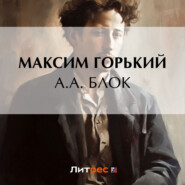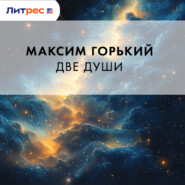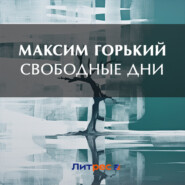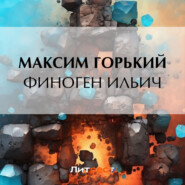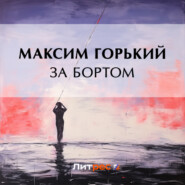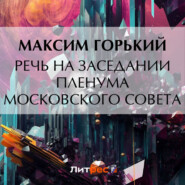По всем вопросам обращайтесь на: info@litportal.ru
(©) 2003-2025.
✖
Mother
Настройки чтения
Размер шрифта
Высота строк
Поля
"I understand!" said Pavel.
"Yes," he said, "I should rather enter the service of the law." The Little Russian waved his hand, and swung his clenched fist. "The law! – curse his soul!" he hissed between his teeth. "It would have been better if he had struck me in the face. It would have been easier for me, and better for him, perhaps, too! But when he spit his dirty thought into my heart that way, I could not bear it."
Andrey pulled his hand convulsively from Pavel's, and said more hoarsely with disgust in his face:
"I dealt him a back-hand blow like that, downward and aslant, and walked away. I didn't even stop to look at him; I heard him fall. He dropped and was silent. I didn't dream of anything serious. I walked on peacefully, just as if I had done no more than kick a frog with my foot. And then – what's all this? I started to work, and I heard them shouting: 'Isay is killed!' I didn't even believe it, but my hand grew numb – and I felt awkward in working with it. It didn't hurt me, but it seemed to have grown shorter."
He looked at his hand obliquely and said:
"All my life, I suppose, I won't be able to wash off that dirty stain from it."
"If only your heart is pure, my dear boy!" the mother said softly, bursting into tears.
"I don't regard myself as guilty; no, I don't!" said the Little Russian firmly. "But it's disgust. It disgusts me to carry such dirt inside of me. I had no need of it. It wasn't called for."
"What do you think of doing?" asked Pavel, giving him a suspicious look.
"What am I going to do?" the Little Russian repeated thoughtfully, drooping his head. Then raising it again he said with a smile: "I am not afraid, of course, to say that it was I who struck him. But I am ashamed to say it. I am ashamed to go to prison, and even to hard labor, maybe, for such a – nothing. If some one else is accused, then I'll go and confess. But otherwise, go all of my own accord – I cannot!"
He waved his hands, rose, and repeated:
"I cannot! I am ashamed!"
The whistle blew. The Little Russian, bending his head to one side, listened to the powerful roar, and shaking himself, said:
"I am not going to work."
"Nor I," said Pavel.
"I'll go to the bath house," said the Little Russian, smiling. He got ready in silence and walked off, sullen and low-spirited.
The mother followed him with a compassionate look.
"Say what you please, Pasha, I cannot believe him! And even if I did believe him, I wouldn't lay any blame on him. No, I would not. I know it's sinful to kill a man; I believe in God and in the Lord Jesus Christ, but still I don't think Andrey guilty. I'm sorry for Isay. He's such a tiny bit of a manikin. He lies there in astonishment. When I looked at him I remembered how he threatened to have you hanged. And yet I neither felt hatred toward him nor joy because he was dead. I simply felt sorry. But now that I know by whose hand he fell I am not even sorry for him."
She suddenly became silent, reflected a while, and with a smile of surprise, exclaimed:
"Lord Jesus Christ! Do you hear what I am saying, Pasha?"
Pavel apparently had not heard her. Slowly pacing up and down the room with drooping head, he said pensively and with exasperation:
"Andrey won't forgive himself soon, if he'll forgive himself at all! There is life for you, mother. You see the position in which people are placed toward one another. You don't want to, but you must strike! And strike whom? Such a helpless being. He is more wretched even than you because he is stupid. The police, the gendarmes, the soldiers, the spies – they are all our enemies, and yet they are all such people as we are. Their blood is sucked out of them just as ours is, and they are no more regarded as human beings than we are. That's the way it is. But they have set one part of the people against the other, blinded them with fear, bound them all hand and foot, squeezed them, and drained their blood, and used some as clubs against the others. They've turned men into weapons, into sticks and stones, and called it civilization, government."
He walked up to his mother and said to her firmly:
"That's crime, mother! The heinous crime of killing millions of people, the murder of millions of souls! You understand – they kill the soul! You see the difference between them and us. He killed a man unwittingly. He feels disgusted, ashamed, sick – the main thing is he feels disgusted! But they kill off thousands calmly, without a qualm, without pity, without a shudder of the heart. They kill with pleasure and with delight. And why? They stifle everybody and everything to death merely to keep the timber of their houses secure, their furniture, their silver, their gold, their worthless papers – all that cheap trash which gives them control over the people. Think, it's not for their own selves, for their persons, that they protect themselves thus, using murder and the mutilation of souls as a means – it's not for themselves they do it, but for the sake of their possessions. They do not guard themselves from within, but from without."
He bent over to her, took her hands, and shaking them said:
"If you felt the abomination of it all, the disgrace and rottenness, you would understand our truth; you would then perceive how great it is, how glorious!"
The mother arose agitated, full of a desire to sink her heart into the heart of her son, and to join them in one burning, flaming torch.
"Wait, Pasha, wait!" she muttered, panting for breath. "I am a human being. I feel. Wait."
There was a loud noise of some one entering the porch. Both of them started and looked at each other.
"If it's the police coming for Andrey – " Pavel whispered.
"I know nothing – nothing!" the mother whispered back. "Oh, God!"
CHAPTER XVII
The door opened slowly, and bending to pass through, Rybin strode in heavily.
"Here I am!" he said, raising his head and smiling.
He wore a short fur overcoat, all stained with tar, a pair of dark mittens stuck from his belt, and his head was covered with a shaggy fur cap.
"Are you well? Have they let you out of prison, Pavel? So, how are you, Nilovna?"
"Why, you? How glad I am to see you!"
Slowly removing his overclothes, Rybin said:
"Yes, I've turned muzhik again. You're gradually turning gentlemen, and I am turning the other way. That's it!"
Pulling his ticking shirt straight, he passed through the room, examined it attentively, and remarked:
"You can see your property has not increased, but you've grown richer in books. So! That's the dearest possession, books are, it's true. Well, tell me how things are going with you."
"Things are going forward," said Pavel.
"Yes," said Rybin.
"We plow and we sow,
All high and low,
Boasting is cheap,
But the harvest we reap,
A feast we'll make,
And a rest we'll take."
"Will you have some tea?" asked the mother.
"Yes, I'll have some tea, and I'll take a sip of vodka, too; and if you'll give me something to eat, I won't decline it, either. I am glad to see you – that's what!"
"How's the world wagging with you, Mikhaïl Ivanych?" Pavel inquired, taking a seat opposite Rybin.
"So, so. Fairly well. I settled at Edilgeyev. Have you ever heard of Edilgeyev? It's a fine village. There are two fairs a year there; over two thousand inhabitants. The people are an evil pack. There's no land. It's leased out in lots. Poor soil!"
"Yes," he said, "I should rather enter the service of the law." The Little Russian waved his hand, and swung his clenched fist. "The law! – curse his soul!" he hissed between his teeth. "It would have been better if he had struck me in the face. It would have been easier for me, and better for him, perhaps, too! But when he spit his dirty thought into my heart that way, I could not bear it."
Andrey pulled his hand convulsively from Pavel's, and said more hoarsely with disgust in his face:
"I dealt him a back-hand blow like that, downward and aslant, and walked away. I didn't even stop to look at him; I heard him fall. He dropped and was silent. I didn't dream of anything serious. I walked on peacefully, just as if I had done no more than kick a frog with my foot. And then – what's all this? I started to work, and I heard them shouting: 'Isay is killed!' I didn't even believe it, but my hand grew numb – and I felt awkward in working with it. It didn't hurt me, but it seemed to have grown shorter."
He looked at his hand obliquely and said:
"All my life, I suppose, I won't be able to wash off that dirty stain from it."
"If only your heart is pure, my dear boy!" the mother said softly, bursting into tears.
"I don't regard myself as guilty; no, I don't!" said the Little Russian firmly. "But it's disgust. It disgusts me to carry such dirt inside of me. I had no need of it. It wasn't called for."
"What do you think of doing?" asked Pavel, giving him a suspicious look.
"What am I going to do?" the Little Russian repeated thoughtfully, drooping his head. Then raising it again he said with a smile: "I am not afraid, of course, to say that it was I who struck him. But I am ashamed to say it. I am ashamed to go to prison, and even to hard labor, maybe, for such a – nothing. If some one else is accused, then I'll go and confess. But otherwise, go all of my own accord – I cannot!"
He waved his hands, rose, and repeated:
"I cannot! I am ashamed!"
The whistle blew. The Little Russian, bending his head to one side, listened to the powerful roar, and shaking himself, said:
"I am not going to work."
"Nor I," said Pavel.
"I'll go to the bath house," said the Little Russian, smiling. He got ready in silence and walked off, sullen and low-spirited.
The mother followed him with a compassionate look.
"Say what you please, Pasha, I cannot believe him! And even if I did believe him, I wouldn't lay any blame on him. No, I would not. I know it's sinful to kill a man; I believe in God and in the Lord Jesus Christ, but still I don't think Andrey guilty. I'm sorry for Isay. He's such a tiny bit of a manikin. He lies there in astonishment. When I looked at him I remembered how he threatened to have you hanged. And yet I neither felt hatred toward him nor joy because he was dead. I simply felt sorry. But now that I know by whose hand he fell I am not even sorry for him."
She suddenly became silent, reflected a while, and with a smile of surprise, exclaimed:
"Lord Jesus Christ! Do you hear what I am saying, Pasha?"
Pavel apparently had not heard her. Slowly pacing up and down the room with drooping head, he said pensively and with exasperation:
"Andrey won't forgive himself soon, if he'll forgive himself at all! There is life for you, mother. You see the position in which people are placed toward one another. You don't want to, but you must strike! And strike whom? Such a helpless being. He is more wretched even than you because he is stupid. The police, the gendarmes, the soldiers, the spies – they are all our enemies, and yet they are all such people as we are. Their blood is sucked out of them just as ours is, and they are no more regarded as human beings than we are. That's the way it is. But they have set one part of the people against the other, blinded them with fear, bound them all hand and foot, squeezed them, and drained their blood, and used some as clubs against the others. They've turned men into weapons, into sticks and stones, and called it civilization, government."
He walked up to his mother and said to her firmly:
"That's crime, mother! The heinous crime of killing millions of people, the murder of millions of souls! You understand – they kill the soul! You see the difference between them and us. He killed a man unwittingly. He feels disgusted, ashamed, sick – the main thing is he feels disgusted! But they kill off thousands calmly, without a qualm, without pity, without a shudder of the heart. They kill with pleasure and with delight. And why? They stifle everybody and everything to death merely to keep the timber of their houses secure, their furniture, their silver, their gold, their worthless papers – all that cheap trash which gives them control over the people. Think, it's not for their own selves, for their persons, that they protect themselves thus, using murder and the mutilation of souls as a means – it's not for themselves they do it, but for the sake of their possessions. They do not guard themselves from within, but from without."
He bent over to her, took her hands, and shaking them said:
"If you felt the abomination of it all, the disgrace and rottenness, you would understand our truth; you would then perceive how great it is, how glorious!"
The mother arose agitated, full of a desire to sink her heart into the heart of her son, and to join them in one burning, flaming torch.
"Wait, Pasha, wait!" she muttered, panting for breath. "I am a human being. I feel. Wait."
There was a loud noise of some one entering the porch. Both of them started and looked at each other.
"If it's the police coming for Andrey – " Pavel whispered.
"I know nothing – nothing!" the mother whispered back. "Oh, God!"
CHAPTER XVII
The door opened slowly, and bending to pass through, Rybin strode in heavily.
"Here I am!" he said, raising his head and smiling.
He wore a short fur overcoat, all stained with tar, a pair of dark mittens stuck from his belt, and his head was covered with a shaggy fur cap.
"Are you well? Have they let you out of prison, Pavel? So, how are you, Nilovna?"
"Why, you? How glad I am to see you!"
Slowly removing his overclothes, Rybin said:
"Yes, I've turned muzhik again. You're gradually turning gentlemen, and I am turning the other way. That's it!"
Pulling his ticking shirt straight, he passed through the room, examined it attentively, and remarked:
"You can see your property has not increased, but you've grown richer in books. So! That's the dearest possession, books are, it's true. Well, tell me how things are going with you."
"Things are going forward," said Pavel.
"Yes," said Rybin.
"We plow and we sow,
All high and low,
Boasting is cheap,
But the harvest we reap,
A feast we'll make,
And a rest we'll take."
"Will you have some tea?" asked the mother.
"Yes, I'll have some tea, and I'll take a sip of vodka, too; and if you'll give me something to eat, I won't decline it, either. I am glad to see you – that's what!"
"How's the world wagging with you, Mikhaïl Ivanych?" Pavel inquired, taking a seat opposite Rybin.
"So, so. Fairly well. I settled at Edilgeyev. Have you ever heard of Edilgeyev? It's a fine village. There are two fairs a year there; over two thousand inhabitants. The people are an evil pack. There's no land. It's leased out in lots. Poor soil!"












